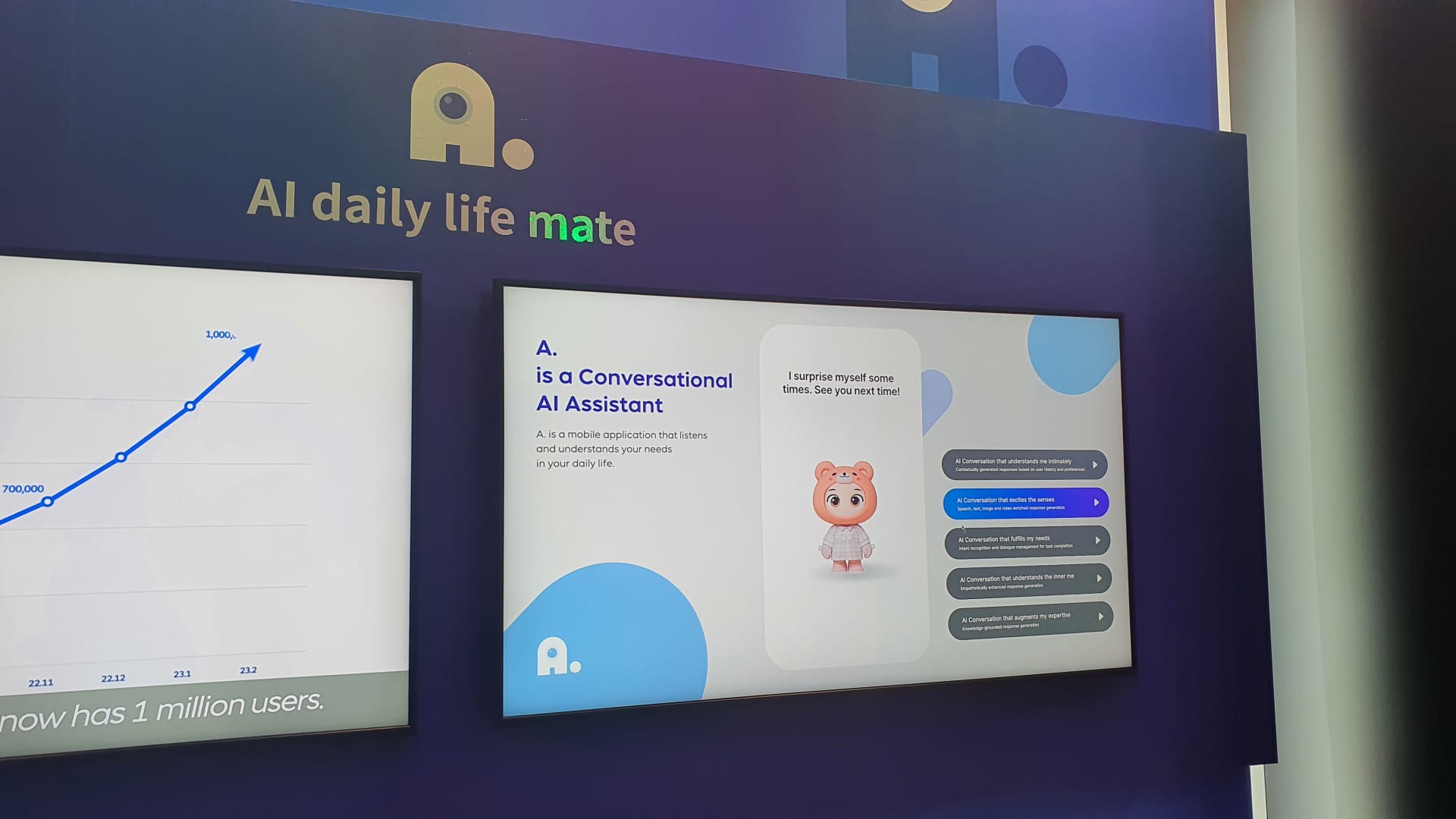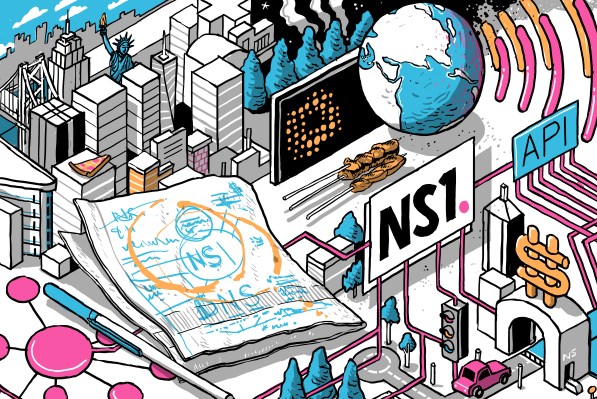Korean telco giant adds ChatGPT tech to its A.I. chatbot, says you can talk to it like a 'close friend'
SK Telecom, one of South Korea's biggest mobile carriers, upgraded its chatbot and added a feature powered by the technology behind ChatGPT.

SK Telecom's "A." (pronounced "A dot") artificial intelligence chatbot has a character that speaks to people. The company has integrated its various service from music streaming to e-commerce into A. and is planning to launch it fully in 2023.
SK Telecom, one of South Korea's biggest mobile carriers, on Friday said it upgraded its chatbot and added a feature powered by the Microsoft cloud and the technology behind OpenAI's ChatGPT.
The company launched a beta version of "A." — pronounced "A dot" — in South Korea in May last year and has been boosting the product's capabilities ahead of a full-scale launch.
SKT added a feature called "Chat T" to A. that is powered by the technology behind ChatGPT, based on Microsoft's Azure OpenAI cloud computing service. Users can prompt the chatbot for answers, just as they can with ChatGPT.
The Korean telecoms giant also added a chatroom function to A. that allows users to have conversations with an AI character.
"Through these conversations, users can share information about their daily life like they are talking to a close friend," SKT said in a press release.
SKT has tried to position A. as a different proposition to ChatGPT. A. has a number of cartoon avatars that users can interact with. SKT said it has brought more AI agents named "A. friends" to the product, equipped with conversational AI technology "that enables emotional and human-like conversations."
"By engaging in conversations with 'A. friends', users can receive counseling and advice on a wide variety of topics," SKT said.
Primarily known as a mobile network, SKT has been keen to diversify its business into new areas. The company plans to launch a flying taxi service in 2025, and CNBC reported in February that its AI chip spin-off Sapeon seeks a $400 million valuation through a new funding round.

 Tfoso
Tfoso 
































